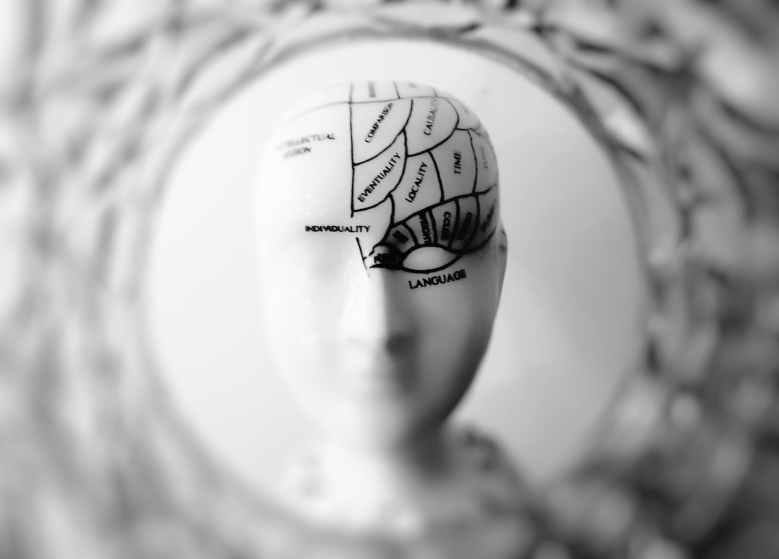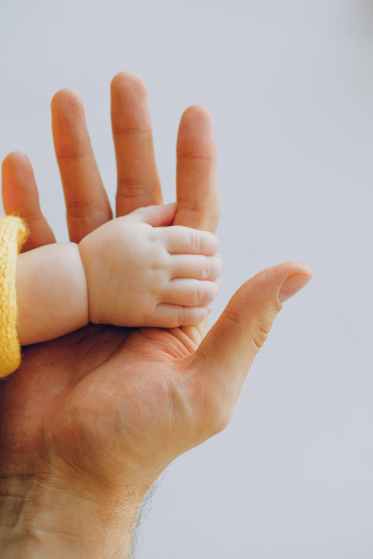A Meditator's Guide to Emotions (I)
This post is going to be the first in a series of 'meditator's guides to...' various things. There is a rich wisdom in the meditative and somatic traditions about the ordinary experiences of life that we all go through: pleasure and pain, joy and sorrow, thoughts, sensations, movement and stillness, activity and rest. These are the kinds of things that are so basic to human experience that we don't really even think about them. They just happen to us, or we do them instinctively. And yet they determine so much of the quality of our lives. Anyone who has lived with pain knows it fundamentally changes your being. It transforms the shape of your personality, the way you inhabit and move your body, the natural rhythm of your day, your routine, your life, your relationships. When it persists for long enough, you end up molding your life around it. The same could be said about a more 'neutral' experience like thinking.
All of us grow up unconsciously learning how to relate to these aspects of life from our family and community, teachers, friends and peers. Later in life we may consciously seek out and learn new ways to relate such experiences—perhaps from self-help books, scientific perspectives, or therapeutic methods. In my own explorations, I keep coming back to the natural wisdom of somatic and meditative traditions. This is a wisdom gathered from the experience of thousands of practitioners across time; people who lived and breathed the same way we do, who experienced and explored their bodies, their thoughts, their hearts, and then generously shared their knowledge by writing, teaching or embodying it. Receiving it is like being taught by a wise elder that you trust.
Traditions like these live on because of their immense practical value. They cut right to the essence of what it is to be human, and how to be human. There is something in them that resonates with us, hundreds or even thousands of years on. They speak to us still through images, metaphors, stories. And even though they are old, they offer us something new and fresh, especially in their simplicity. My hope is that you find a hidden gem or jewel in one or more of the posts in this series, something that changes the way you relate to yourself or your life for the better.
Disclaimer: In this post I am not talking about pathological or clinical experiences of emotion, but the ordinary everyday feelings that we all experience as part of a healthy human life. If you are suffering from severe emotional pain or disruption, please seek professional help.
What are emotions?
It might sound like an obvious question, but I want to begin at the beginning, to clarify our foundational beliefs around emotions. I believe that most of us know what emotions are; we are familiar with the big ones at least (happiness, sadness, anger etc.) and what they feel like. But many of us are unclear on what emotions are for, where they come from, why we have them and what purpose they serve, if any.
The commonly internalised subconscious learning from modern culture is that:
Emotions just happen to us involuntarily (or even randomly)
They arise as a result of physical and chemical changes in the brain and body.
They often get in the way of good judgment, and are therefore not to be trusted.
The positive ones are nice and we should chase them with all we've got.
The negative ones range from being inconvenient to outright harmful, and we should avoid and/or control them as much as possible.
Extreme emotional states are completely destabilizing and require you to alter yourself on a chemical level by taking drugs.
Now I will share the view distilled from the wisdom traditions of meditation and somatics:
Emotions are 'energies in motion'. They are your internal weather patterns, constellations formed by the life force as it moves and expresses itself through you.
Every emotional experience is unique, alive and ultimately impermanent, a particular pattern of energy that will never appear again in the same way.
Emotional experience is always personal and intimate, because...
Emotions arise out of your interactions with yourself and the world. They are inner manifestations of your responsiveness to life. Feelings are a sign of care about something or someone; if you didn't care, you wouldn't feel.
Emotions are a signal to reconnect with your life force, your deeper self. They are interrlated with your thoughts, behaviors, beliefs and actions, so when they arise, they can also be an invitation to explore different aspects of your inner life: your beliefs, behaviors, needs and values.
Emotions that remain unfelt, unacknowledged, unseen or unheard live on in the body; they don't just go away. When a person is unable to feel or in some way express their emotions, the energies get stuck inside them and create disturbances or blockages in the life force (like a dam in a river).
When emotions become pathological, it is a sign of imbalance in a person's energetic 'metabolism'. They are unable to process the energy of the emotions in a healthy or natural way, and end up harming themselves or others.
I juxtapose these two sets of interpretations not to suggest one is right and the other wrong, but to ask you which set, or which particular points, you would prefer to live by. Also, what does it feel like to you when you read these descriptions? Do any of them resonate? Is there something particular that draws your curiosity? Note that the two views are not entirely incompatible—there is truth in both, but they are talking about different levels of experience. Let's explore a little further...
What to do with them?
Now that I have laid out the foundational approach to emotions, we can dive into how to deal with them. This is really the meat of the matter. What to do in the moment when you start feeling sad, or angry? Importantly, you do have a choice:
Can you attend in this moment?
Or will you attend at a later moment?
I say you do have a choice, but this is really the only choice you have. As much as we'd all like to, we don't have the choice not to attend at all and hope that whatever we're feeling will just go away. Recall that emotions are not random: when they arise there is a point, a purpose to be found in attending to them. Wishful thinking does not drive that purpose or the energy behind it away, it just diverts it into a different outlet, or dams it up and creates a backlog that will become a future problem.
If you have a few minutes, it's best to attend in the moment, to avoid emotional eruptions that you will inevitably have to deal with later. You only need a very brief time window, because you are not doing a deep dive into everything (that can come later). Just a few seconds, a micro-moment of personal connection, can help acknowledge what's there and keep the energy moving. Think about it this way: the few moments or minutes you give yourself now spare you time, effort and heartache later.
It's a training and a practice to learn to engage skilfully in the moment, and you'll need to have a clear intention that you actually want to do so—otherwise habit and conditioning will take over, and you will reach for whatever distractions you are used to (Netflix, food, phone scrolling, alcohol, work, etc.)
I can think of a few (limited) times when it might not be ideal to attend in the moment:
in the middle of a meeting, presentation, class that you are giving
while driving or engaging in a task that requires your full attention for safety reasons
when with other people who need you to be present, like children (with adults you can usually step away for a few minutes: "I need to go to the bathroom" or "I need some air")
in the midst of a life-threatening emergency
If you recognize that you can't attend right now, you may be able to think instead of a specific time when you will attend: "I will come back to this tonight after dinner." This is a kind of promise you make to yourself, which you try to keep. It's less of a deferral, more of a commitment. And sometimes we forget, but it's okay, because as long as we give ourselves time and space, life and our bodies will remind us by triggering that feeling again—all we need to do is remain attentive.
Having a regular period of introspection—which you could call meditation, self-care, journalling, or simply "me time"—is one of the ways that we process the inevitable backlog of emotions that all of us have built up. Humans are such sensitive and responsive creatures that it is virtually impossible for us to fully process all our emotions in the moment. (Although it is said that this is one of the skills of an awakened being, that nothing "sticks to them", but I digress.) Another reason why you'd want a dedicated time to process is because in the moment we are not always aware of what we are feeling, or even that we are feeling anything. So in your downtime, it is normal that the unfelt arises to be felt, and the unknown arises to be known.
In my view a healthy and balanced emotional life is one where you briefly attend in the moment whenever you can, and then have a dedicated time to catch up on all the things you may have missed later. This keeps your whole system fresh and ready for whatever life gives you next. The sweet thing is that these two approaches, or habits, feed each other, so that doing even one of them will naturally support the other.
How to attend?
Now that you have decided to attend to your emotional state, what can you actually do? If we want our emotions to move through us and be transformed, then we need to actually feel them, on a physical, somatic, energetic level. Let the emotion freely express itself in its movement, its tone, its texture as it passes through you. See if you can avoid analysing it, deconstructing it, thinking about it, ruminating on it, trying to talk yourself into or out of or around it. These approaches tend to detach you from the immediate energy of the emotion and rather than liberating it, can keep it stuck in place and form. You can always return to consciously examine and understand what happened after it's over; but in the moment, it's often more appropriate and useful to speak the language of emotions (which is physical, energetic, somatic) rather than the language of analysis, concepts, beliefs.
You are cultivating a kind of attention that could be called emotional presence, or welcoming attention, or feeling awareness, or whatever you like... Essentially you accompany yourself through the emotional experience with a welcoming, gentle, compassionate presence. The way you would be with a friend, a child or an animal in distress. Not all of us are familiar with what this feels like, but all of us have the ability to discover and embody it. It's a natural instinct to care for and nurture ourselves, it just needs to be activated and directed.
Since this post is already quite long, I'm going to stop there for now and let you digest. In my next post, I will offer some tips on how to attend to your emotions in a way that makes it easier and less overwhelming.
In the meantime, I'm curious: did you learn something new about emotions? Is there something in here you want to explore more deeply? Or maybe that you're not clear on, or disagree with? Let me know in the comments below, I welcome your feedback.
And if you would like to experience or cultivate feeling presence in a guided practice, you can check out this Heart-Centered meditation that I recorded:
Postscript: Other Approaches
Emotions are a huge part of life and there is so much individual variation in how we each experience them. It may be that what works for me doesn't work for or resonate with you, and that's perfectly fine. However, in the interests of helping you find your way, I want to share two approaches I have personally found beneficial and would recommend. They come from related but different traditions, and both are a way to cultivate a generous feeling presence. Enjoy.
Tara Brach's RAIN
Thich Nhat Hanh
If you find value in these posts, or in any of my work, please consider upgrading to a paid subscription. You can read more about how that works here. Thank you for your support.







